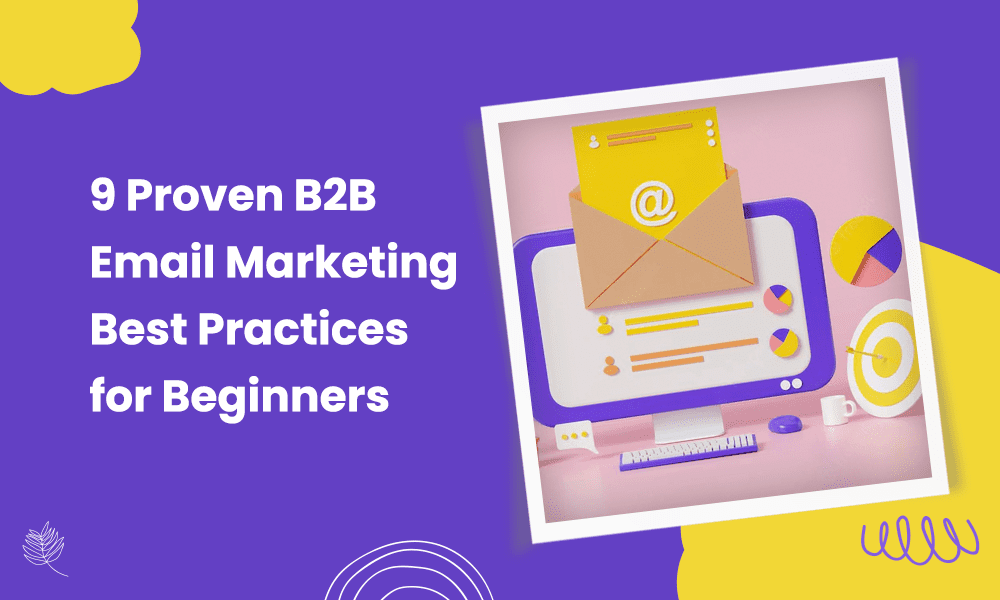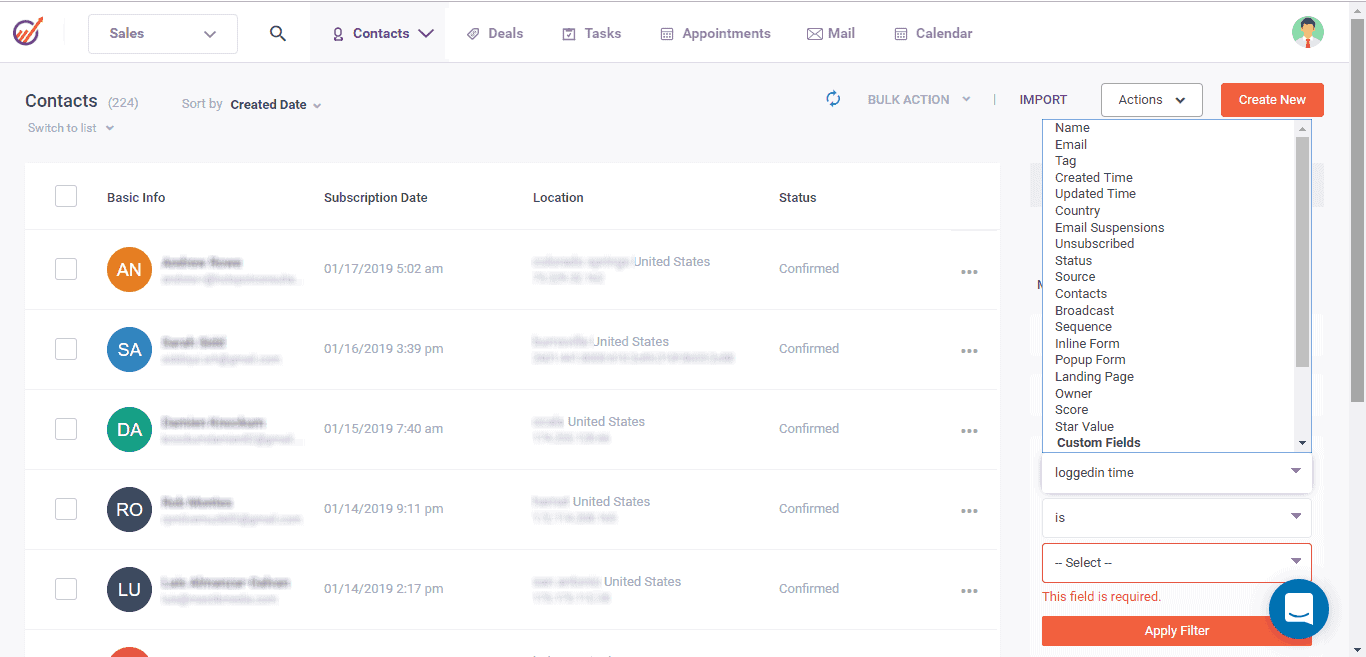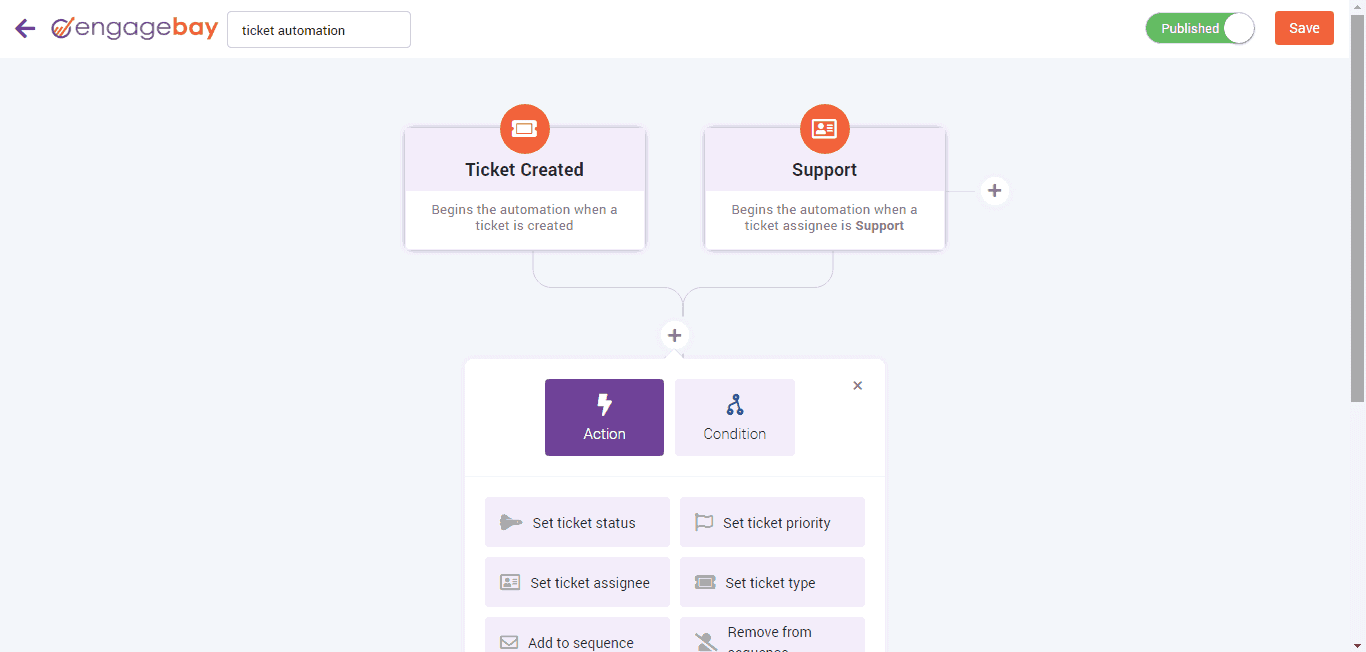With 81% of all B2B marketers using email marketing as their primary mode of content marketing, it is clear that businesses need to bring their A-game here.
Any company can send out email newsletters, but it takes considerate planning and effort to launch effective email marketing campaigns that actually work. You need to focus on the content, understand your target audience, test your copy, figure out the right time to follow up, place your CTAs correctly — the list goes on.
That’s why we’ve written this blog post detailing the email marketing best practices for B2B companies. We’ve also listed some amazing email marketing examples so you can see how things work in real life. Here’s a breakdown of this post:
- The importance of content in email marketing
- The need to target DMUs (Decision Making Units)
- The nine best email marketing practices for B2B customers
Let’s get started!
Table of Contents
In Email Marketing For B2B, Content Is King
Before we delve into the email marketing best practices, let’s review the basics. Targeting, automation, and drip email campaigns have become so important in email marketing that they’re not even considered best practices anymore; they’re the foundation of today’s email marketing.
Let’s see why.
But first, let’s understand the difference between B2B and B2C email marketing.
Difference Between B2B and B2C Email Marketing
I won’t get into the details, but here are a few key differences:
- B2B companies and customers make purchasing decisions based on one goal: to improve the ROI. In contrast, B2C customers mostly make purchases that are triggered by emotions.
- B2B customers usually have a longer buying cycle when compared to individual customers. That’s why an email campaign targeting businesses should have multiple workflows, nurturing the relationship over months.
- B2B buyers focus more on how a product or service can help them save time, resources, and money. Your content should reflect that. You must have content that educates and convinces a potential customer to purchase. In sharp contrast, a B2C email should target the reader’s emotions — using eye-catching visuals, subject lines, and shorter email copy with clickbaity CTAs and discounts.
Drip Emails: One Single Email Just Won’t Cut It
Consider the scenario of a person from a manufacturing company subscribing to your list. Let’s say you provide raw materials.
People don’t want to invest in raw materials on impulse. You need to deal with long buying cycles, and as such, a series of well-planned B2B emails spread over a long period of time based on event triggers would be a better option.
In other words, marketing automation that makes the most of email sequences and drip emails would form the core of this process. Use our beautiful email templates to kickstart your drip email campaigns.
That’s why content is king here.
An analysis conducted by Admitter, a Dutch email marketing agency, found that in 90% of cases, the call-to-action link with more information converted better than calls to action like “try me now” or “buy now.”
This would indicate that relevant content before selling works better in most cases, especially if the information is aligned with the recipient’s interests.
An informative and well-placed CTA is among the most important B2B email marketing best practices.
Read also: Marketing Automation Best Practices for the Non-Technical Marketer
How Content Should Be Framed for Email Marketing
People want to be informed with relevant and engaging content.
That’s why knowing what content to offer based on your audience is key. The table below from Brainrider shows what content to share at each stage of the buying cycle:
| If your customer is asking: | What’s my problem? | How do I fix my problem? | Are you right for me? |
| They want: | Education and thought leadership | Solutions and product suitability | Credentials and decision support |
| What to share with them: |
|
|
|
Read also: How To Write The Perfect Christmas Email [+ Fresh Subject Lines]
Enhance Your Email Marketing
Want to make your emails more impactful? Check out our beautiful, easy-to-customize HTML email templates. Designed to boost engagement, these templates from EngageBay will help your emails stand out. Just customize the images, headings, and CTAs for your brand, and hit send in a few minutes!
How To Target Your Content: Aim for the DMU
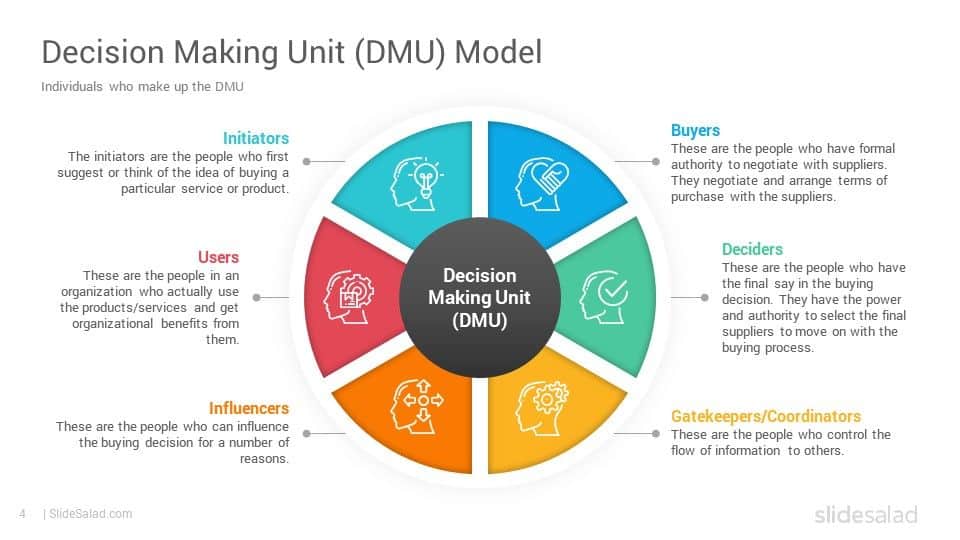
For your B2B email marketing to work, you’ll want to get the right audience onto your email list.
On the face of it, it is natural to think that you would need to go after decision-makers, such as the directors of a company or its CEO. However, titles often mean very little today. For example, if you do a search on LinkedIn and use “CEO” as a filter, how do you distinguish between the owner of a restaurant, the CEO of a startup, and the CEO of a cruise line?
To get the right audience onto your list, you will also need to use other criteria. Company size on its own is likely a better criterion for finding the right kind of audience. Also, a single individual rarely makes decisions, so you may need to target multiple people in an organization. This group of people is called an organization’s Decision-Making Unit (DMU).
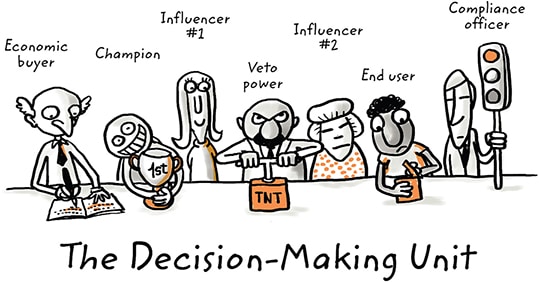
A DMU will often consist of people with varying responsibilities who will each look at your emails from their own perspective. To effectively engage each of these individuals, list segmentation becomes vital. Your best email messages can then be crafted to target each individual and their challenges.
Also Read: CRM Functionality: Top 3 Features and Why You Need Them
9 B2B Email Marketing Best Practices to Engage With Your B2B Audience
Here are nine proven B2B email marketing best practices to expand reach, improve deliverability, and convert prospects into customers. Let’s begin!
1. Resonate With Your Tone
The tone of your email sets expectations, as the first impression you make significantly impacts your email recipient. B2C emails often display a tone designed to grab a recipient’s attention, with calls to action like “buy now,” “sign up now,” and so forth. This tone is great for B2C marketing emails as they can be entertaining and visually appealing.
By comparison, B2B email marketing is more about fostering relationships and offering a trusted solution in a way that you’d like the recipient to value.
Here’s a great example from ArogaPulse:
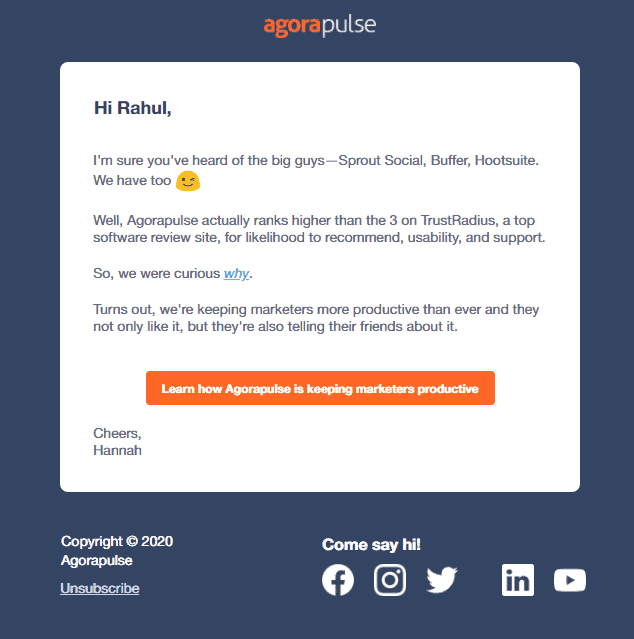
Read also: 14 Key Email Marketing KPIs Every Marketer Should Master in 2023
2. Personalize Your Messages
This is one of the most important B2B email marketing best practices: personalization.
In a study conducted by Experian Marketing Services, personalized subject lines make it easy to boost email open rates by 29.3% across industries. So whether it is a welcome email message or a marketing email, you’ll need a personalized email subject line for the best results.
Personalization of a B2B email campaign has come a long way since the days when “Hi [first name]” was a common practice. In fact, today, a B2B marketer has access to a wide range of tools and customer data to personalize messages based on where a person is in their buying decision.
Guessing who your target audience is and what they’re looking for will not yield results. Your existing clients can provide the information and data you need to identify the clear yet common characteristics of your ideal customers.
These “clear yet common characteristics of your ideal customers” are often called buyer persona. This can include details such as a person’s title, industry, demographic, psychographic, geographic information, and other data points. Depending on your business, you may have one or more buyer personas.
What do these buyer personas allow you to do?
They allow for better B2B email marketing campaigns, as your emails:
- Can be highly personalized and targeted
- Can be sent at an appropriate time for your audience
- Allow you to use other relevant channels to get the message to your desired audience
Here are a few ways to use that data to help develop your B2B email marketing best practices:
- Use contextual subject lines that set the right expectations about the content of your email.
- Ask relevant questions so your audience has relevant options to act on.
- Segment your list based on time zones so potential customers receive messages at the right time.
- Categorize your list based on different personas.
- Set up trigger emails based on lead behavior.
- Use timely but limited follow-ups.
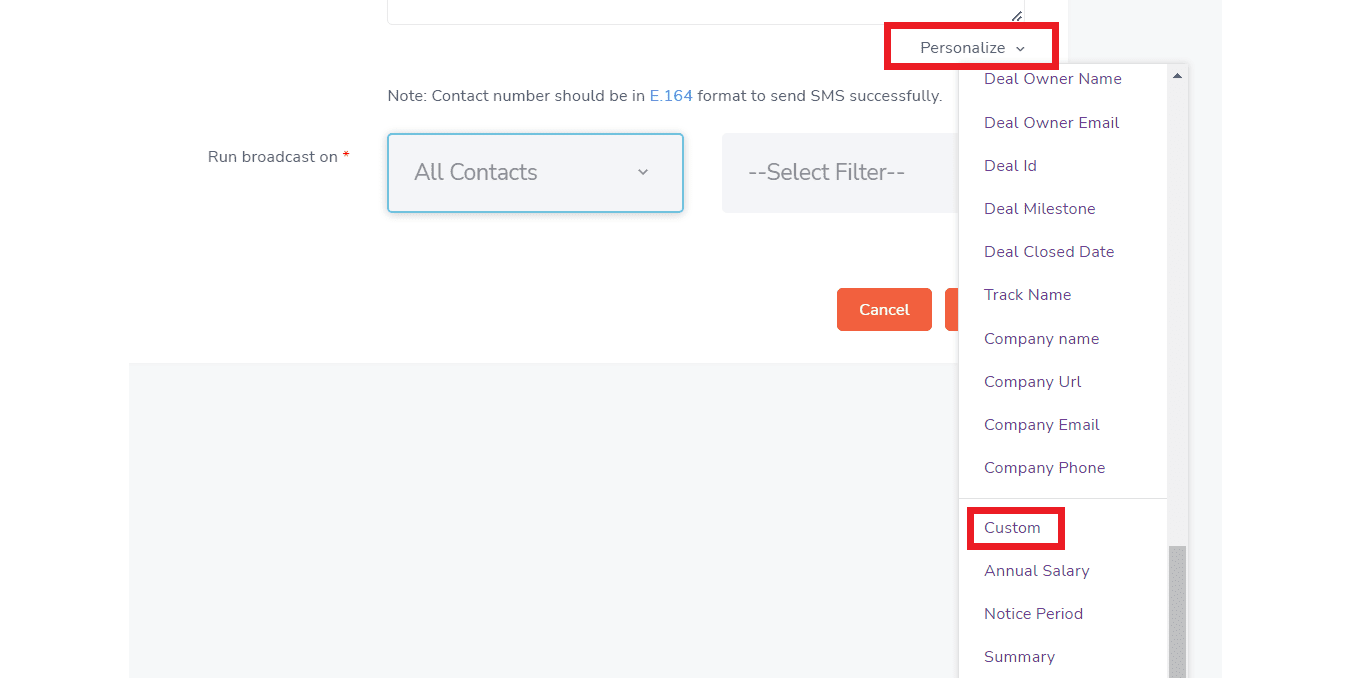
eCommerce Email Marketing Simplified: 15 Examples + Tips
3. Craft Subject Lines That Pique Interest
Here’s another email marketing best practice for you.
Research shows that 64% of people open an email campaign based on the subject line alone. Subject lines play a critical role in the open rates of any B2B email marketing campaign.
Check out the following email subject lines from publications that I came across recently:
While the interests and nature of your audience determine to a large extent what will or won’t work, here are some principles to make your B2B email subject lines better:
- Ditch spam words and symbols in your subject line.
- Aim for 17-24 characters.
- Keep your subject line short, ideally 3-5 words.
- Include at least one emoji in your subject line.
A/B testing your email subject lines will provide the data you need to make informed decisions in the future, but this email subject line tester will also help get recipients to open your email.
Read also: 2023 B2B Marketing Ideas: What HubSpot, Flock Freight, and LinkedIn Can Teach Us
4. Validate Your Emails
There isn’t much point in having a B2B email marketing strategy if your emails don’t reach the intended recipient’s inbox, right? Invalid emails and email bounces will affect the overall effectiveness of your email campaigns. They also endanger your reputation.
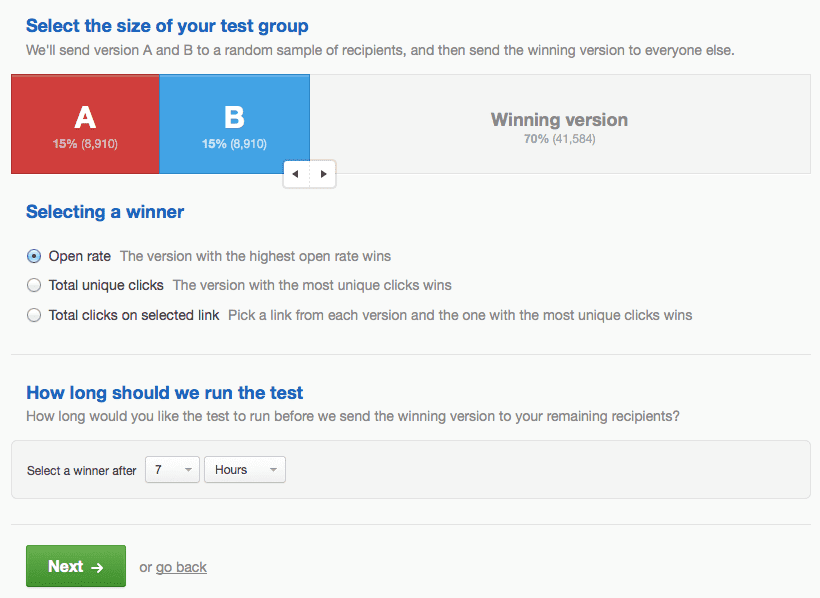
That’s why tools like EngageBay offer spam protection, double opt-in, A/B testing, and advanced analytics to validate emails and maximize effectiveness. That’s why validating your email is one of the most powerful B2B email best practices.
Work smart, not hard. Use a tool like EngageBay to validate your emails and ensure that your content reaches the intended audience.
Read also: Learn Email Acquisition From These 6 Strategies And 5 Examples
5. Include a Call to Action
87% of B2B email marketers use email marketing to nurture and generate leads. Your emails are key to building an ongoing conversation with your audience. That said, they need to do more than remind customers that you exist.
How do you do that, then? For one, you can include a call to action to visit your landing page or give customers a few options to continue the dialogue with you. Calls to action can take the form of a question, sharing of relevant resources, or choosing an option based on where the potential customer is in the buying cycle.
Having a main call to action section in your email templates isn’t going to be enough, though. The context in which it’s presented also matters. In other words, the copy is critical in whether new customers will follow through on your encouraging action.
Here’s a great example from PSD2HTML. The CTA is bright, easily visible, and related to the content. Notice the specific nature of the call to action, which displays a button to take them to a landing page:
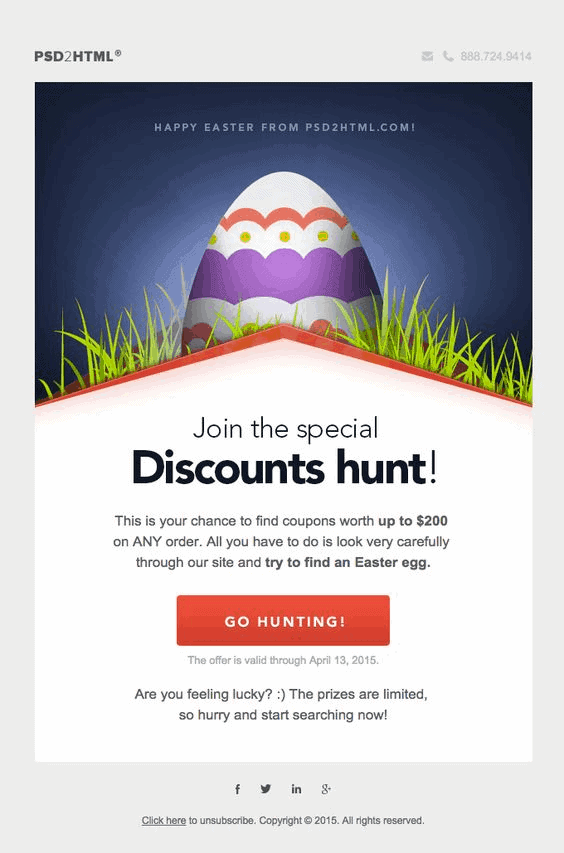
How to create an amazing call to action that enhances clickthroughs:
- Your CTA has three key elements to consider: the action you want readers to take, the words used, and the design of the CTA.
- Express the CTA clearly to answer the question: “What’s in it for me?”
- The location of your CTA matters — and that’s why you should place them in a way that is easily visible and accessible.
- Your email content matters and should lead to a natural call to action.
- Provide clear directions so that the CTA answers the following questions: “What should they do?”, “Where will they go?”, and “Why should they follow through?”
- If using images for CTAs, ensure that alt-tags are obvious even when your clients use image blocking.
- Readers tend to click on logos and pictures, so make sure these images are linkable, or readers are liable to think your email is broken.
Also read: Here Is Your To-Do List of 9 Tasks for High Email Deliverability
6. Segment Your List Around Interest Levels
If you need to keep your email content on point, you have to segment your list based on your audience’s interest levels in your brand.
By segmenting your list based on interest and communication preferences, you can deliver personally relevant content that can potentially convert your readers into new subscribers.
So, how do you gather the information you need?
To get started, ask them a few questions while signing up that will gauge their interests, priorities, and preferences.
Segmentation software can help you segregate your audiences based on various factors, including demographics, age, income, past purchases, email receptivity, and more. This will help you tailor the content and improve brand perception.
Also read: Email Copywriting 101: Tips to Craft High-Converting Email Copy
7. Time It Right
Timing can play a crucial role in your B2B email marketing. While the best times differ for each audience and business, the data from your analytics can help you acquire the information you need to understand the right time to send your email.
Another aspect of timing is understanding what stage of the buying cycle your reader is in. This can subsequently determine the kind of follow-up emails that need to be sent.
For example, if a person watches a video or webinar, they’re likely interested in that particular topic. This opens up the opportunity to send follow-up emails with relevant products and services — or even phone calls.
Like what you read? Check out our popular blog post on the power of creative marketing strategies to skyrocket your business growth.
Read also: Make No Mistake: Email Marketing Automation Best Practices
8. Keep Messages On Point
People who offer you their email addresses believe they’ll receive information and content to help them. That’s why keeping your messages on point and relevant to the context that nudges people to sign up for your list is extremely important.
In other words, it boils down to creating the best email content centered around your audience’s interests.
For example, the content marketing studio Marketoonist by Tom Fishburne sends out regular cartoons around topics that any B2B email marketer can identify with.
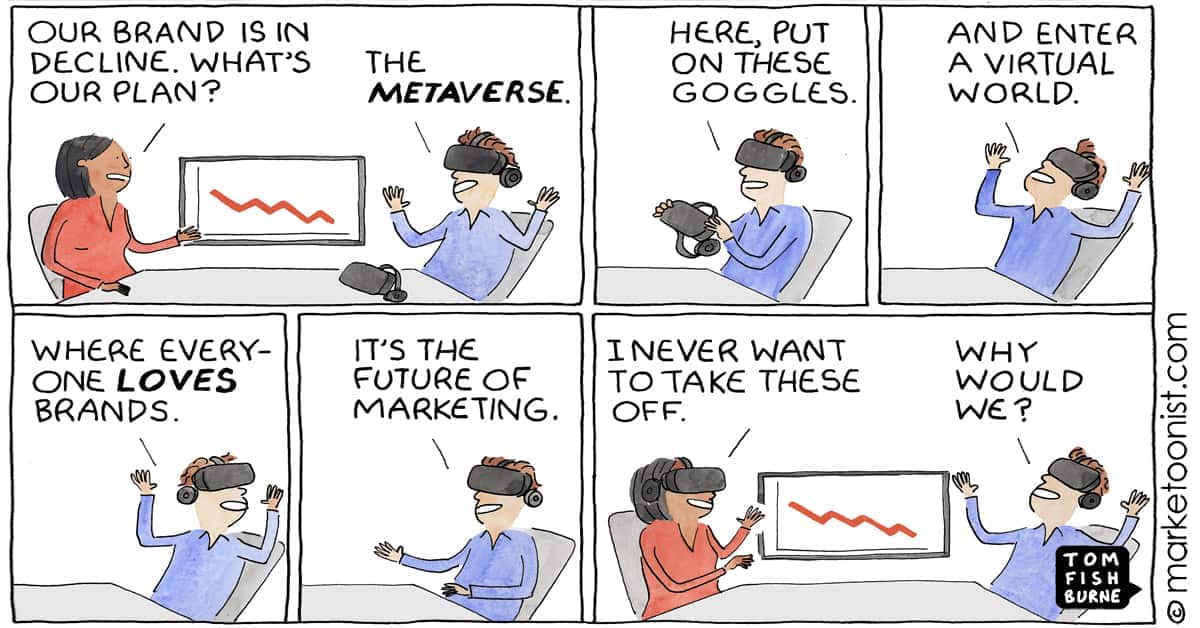
Here are a few tips to help keep your content on point:
- Send B2B marketing emails only when you have something of value to share.
- Keep your messages clear, simple, and concise.
- Write great copy (if you need help, hire a professional writer).
- Go easy on B2B sales-oriented messages.
- Allow every email subscriber to customize the type and frequency of the messages they receive.
- Invest in a great design that grabs your readers’ attention from the start.

Read also: Re-Engagement Emails 101: A Guide [With Templates]
9. Omnichannel Coordination and Automation
For B2B marketers, marketing automation has emerged as a key to growing business revenue. With customers using multiple channels and sources to get information, utilizing omnichannel marketing makes sense.
Jill LeMaire Redo, VP of Digital Strategy and Insights at Epsilon, says:
“It is the coordination and integration of all marketing communication tools, avenues, and functions into a seamless program that maximizes the impact on consumers while minimizing costs.”
Daniel Burstein, Senior Director of Content & Marketing at MarketingSherpa and MECLABS Institute, says:
“Every interaction your customer has with your brand—through email, but also through any other customer touchpoint—will impact the success of your best email marketing program because it will impact customer satisfaction and brand perception.
For example, half (50%) of satisfied customers often or always subscribe to a company’s email list, but less than a quarter (23%) of unsatisfied customers subscribe to a company’s email.”
A strong value proposition will help ensure your automation and coordination efforts are geared around the customer’s needs. In other words, it offers a seamless customer experience.
Automation in email marketing for B2B can be a great way to acknowledge the action that customers or prospects have taken and reduce the chances of them feeling confused, uncertain, or frustrated.
Having an omnichannel approach can help you cast a wider net, capturing more leads while also improving customer experience.
Read also: Email Animation Station – Your Guide To GIFs And More
Conclusion
Email marketing for B2B involves many moving parts, and manually performing these actions can become mundane, time-consuming, and outright ineffective.
Fortunately, there are ways to automate these best practices. There are dozens of email marketing software to help you accomplish them, but why bother when you can do all this using a single, unified software?
Yes, that’s right.
An all-in-one marketing, sales, and customer support software like EngageBay can help you with these successful B2B email marketing hacks.
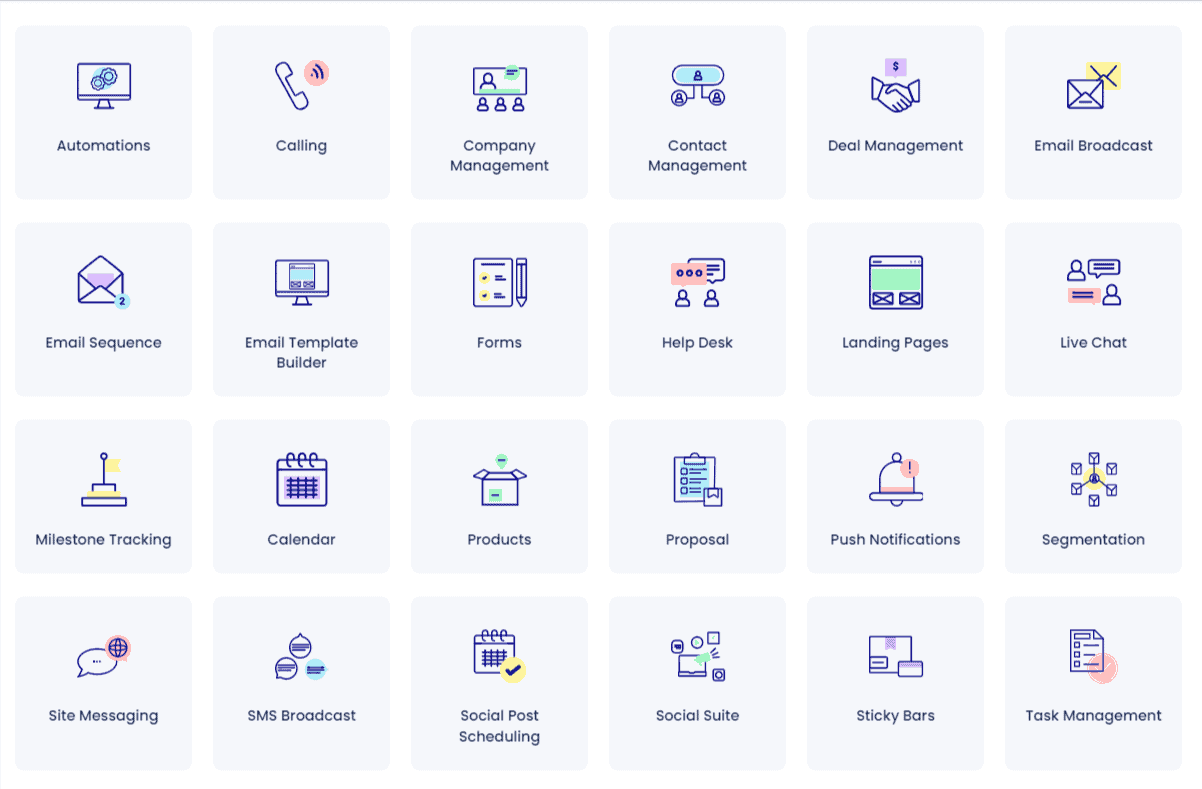
With EngageBay, you get digital marketing tools for email personalization, audience segmentation with smart lists, timezone-based email delivery, social media marketing, prospect nurturing, email automation, omnichannel marketing, and powerful analytics. That’s not all — you also get access to 1,000+ free and stunning email templates!
The icing on top? EngageBay is the most affordable B2B email marketing service in the market today.
👉 Supercharge your email marketing with our ultimate guide on the best opt-in strategies – don’t miss out!
